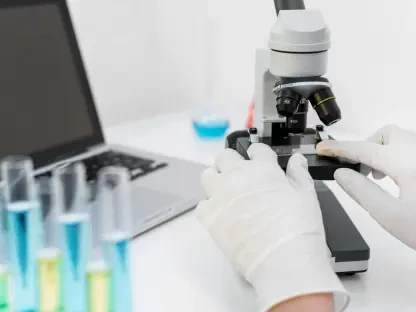Overview of the Diabetes Management Technology Industry
The diabetes management technology sector stands at a pivotal moment, with continuous glucose monitoring (CGM) devices transforming how millions manage their condition, driven by rapid innovation to provide real-time data to patients and healthcare providers. This industry enhances the ability to control blood sugar levels with precision. Major players like DexCom and Abbott Laboratories dominate the market, competing fiercely to offer the most accurate and user-friendly solutions. Their products, particularly CGM systems, have become indispensable tools for those with diabetes, reducing reliance on traditional fingerstick tests.
Beyond the technological advancements, the sector operates under stringent regulatory oversight, with the FDA playing a critical role in ensuring device safety and efficacy. Compliance with these standards is non-negotiable, as inaccuracies or malfunctions can lead to severe health consequences. The balance between innovation and regulation remains a constant challenge, as companies strive to outpace competitors while adhering to rigorous safety protocols. This dynamic shapes the competitive landscape, where trust and reliability are as valuable as cutting-edge features.
DexCom’s G7 Device Controversy
FDA Findings and Unauthorized Design Changes
A surprise FDA inspection recently uncovered significant issues with DexCom’s G7 CGM device, leading to a citation for distributing what the agency termed “adulterated” products. The core of the problem stems from an unauthorized modification to the sensor coating, implemented in late 2023 without regulatory approval. This alteration, possibly intended to enhance performance or cut costs, instead compromised the device’s accuracy across key metrics, as revealed by internal testing data.
The implications of this finding are profound, as the FDA’s designation of adulteration indicates a direct risk to patient safety. Distributing such devices without clearance raises questions about the company’s commitment to regulatory standards. The decision to continue sales despite known inaccuracies has drawn sharp criticism, spotlighting potential gaps in oversight and accountability within the organization.
Patient and Professional Backlash
Patients relying on the G7 have voiced widespread frustration, with many reporting severe health issues tied to erroneous readings. Instances of hospitalizations and other serious outcomes have surfaced, amplifying concerns within the diabetes community. A dedicated online group focused on G7 problems has grown to over 58,000 members in a short span, serving as a platform for shared grievances and a testament to the scale of dissatisfaction.
Medical professionals, particularly endocrinologists, have echoed these concerns, noting an uptick in sensor inaccuracies and device failures compared to previous models. Issues such as poor adhesive quality have further eroded confidence, prompting some doctors to halt prescriptions of the G7 entirely. This backlash has driven a noticeable shift, with patients reverting to older DexCom models or exploring alternatives from competitors, highlighting a critical loss of trust in the product.
Internal Challenges and Corporate Culture at DexCom
Allegations from former employees paint a troubling picture of a corporate culture at DexCom that may prioritize profit over safety. Reports suggest a rushed push to market the G7, driven by intense competition with rivals like Abbott Laboratories, led to compromises in quality control. Such claims indicate systemic issues, where financial targets potentially overshadowed the fundamental need for reliable medical devices.
Leadership challenges compound these concerns, with the abrupt departure of longtime CEO Kevin Sayer signaling internal unrest. Admissions from within the company, including from a former senior director, point to a lack of expertise in critical areas and poor decision-making processes. This acknowledgment of shortcomings suggests an urgent need for a cultural reset to realign priorities toward patient well-being over market gains.
The combination of these internal struggles reveals a company grappling with its identity amidst external pressures. The alleged arrogance within certain teams, as described by past staff, could hinder efforts to address these issues effectively. Rebuilding a framework that values safety and transparency will be essential for restoring credibility.
Regulatory and Compliance Failures
The FDA’s criticism of DexCom underscores the gravity of non-compliance in the medical device industry, where even minor deviations can have outsized impacts on patient health. The unauthorized sensor coating change represents a clear breach of established protocols, calling into question the robustness of the company’s regulatory adherence mechanisms. Such lapses are not merely administrative but directly correlate with the risk of harm to end users.
This incident reflects broader challenges within DexCom’s approach to safety standards, suggesting that internal processes may lack the rigor needed to prevent such oversights. The FDA’s involvement serves as a stark reminder that innovation must be matched by accountability. Failure to align with these expectations can tarnish a company’s reputation and invite further scrutiny from regulators.
Beyond immediate repercussions, this situation highlights the importance of proactive compliance in maintaining market trust. Companies in this space must anticipate regulatory expectations rather than react to citations. For DexCom, addressing these gaps will be crucial to avoiding future conflicts with oversight bodies and ensuring product integrity.
Market and Financial Implications
Competitive pressures in the CGM market are intensifying, with Abbott Laboratories’ Libre 3 gaining traction among users disillusioned with DexCom’s offerings. This rival product has faced fewer accuracy-related complaints, positioning it as a viable alternative for many. Additionally, the rise of GLP-1 drugs presents a longer-term threat, potentially slowing growth in the diabetes technology sector as treatment paradigms evolve.
Financially, DexCom faces mounting concerns, with scrutinized accounting practices raising red flags among analysts about the sustainability of recent earnings. Insider stock sales have fueled perceptions of instability, while a recent stock price drop of 4.54% to $72.97 reflects investor unease. Trading within a 52-week range of $57.52 to $93.25, the company’s market position appears vulnerable amid these challenges.
The convergence of competitive and financial headwinds places DexCom at a critical juncture. Losing ground to rivals while grappling with internal and regulatory issues could erode market share further. Strategic adjustments, including transparent communication with stakeholders, will be necessary to stabilize both financial performance and consumer confidence.
Future Outlook for DexCom and the Industry
Looking ahead, DexCom must navigate a complex path marked by regulatory scrutiny, eroded patient trust, and fierce competition. Rebuilding credibility will require tangible steps, such as rigorous quality assurance reforms and open dialogue with both regulators and the diabetes community. Failure to address these issues risks long-term damage to its standing as a leader in CGM technology.
Industry-wide, the focus on innovation in diabetes management continues to accelerate, with advancements in sensor accuracy and integration with digital health platforms shaping the next generation of devices. Consumer preferences are also shifting toward solutions that prioritize reliability and ease of use, pushing companies to balance cutting-edge features with proven dependability. DexCom’s ability to adapt to these trends will be a key determinant of its future success.
The broader landscape suggests a period of transformation, where regulatory expectations and patient demands will redefine success metrics. For DexCom, aligning with these evolving standards offers an opportunity to emerge stronger, provided it can overcome current setbacks. The coming years, particularly from 2025 to 2027, will test the resilience of both the company and the sector as a whole in meeting these challenges.
Conclusion and Key Takeaways
Reflecting on the challenges DexCom encountered with the G7 device, it became evident that regulatory missteps, patient harm, and internal discord had created a multifaceted crisis. The FDA’s citations for distributing adulterated products, coupled with widespread complaints, have exposed vulnerabilities in the company’s approach to safety and compliance. These events, alongside leadership upheavals and competitive pressures, have painted a picture of a firm at a critical turning point.
Moving forward, actionable steps for DexCom include prioritizing robust quality control systems and fostering a culture that places patient safety above financial imperatives. Engaging transparently with regulators to rectify past errors and investing in expertise for critical components offer a pathway to regain trust. These measures, if implemented decisively, hold the potential to reposition the company as a reliable leader in the diabetes tech space.
Lastly, the broader industry stands to benefit from this cautionary tale by reinforcing the importance of stringent adherence to safety protocols. Collaborative efforts between companies and oversight bodies could drive standards that prevent similar lapses, ensuring that innovation does not come at the expense of user well-being. DexCom’s journey ahead promises to serve as a benchmark for how resilience and accountability can shape the future of diabetes management technology.









